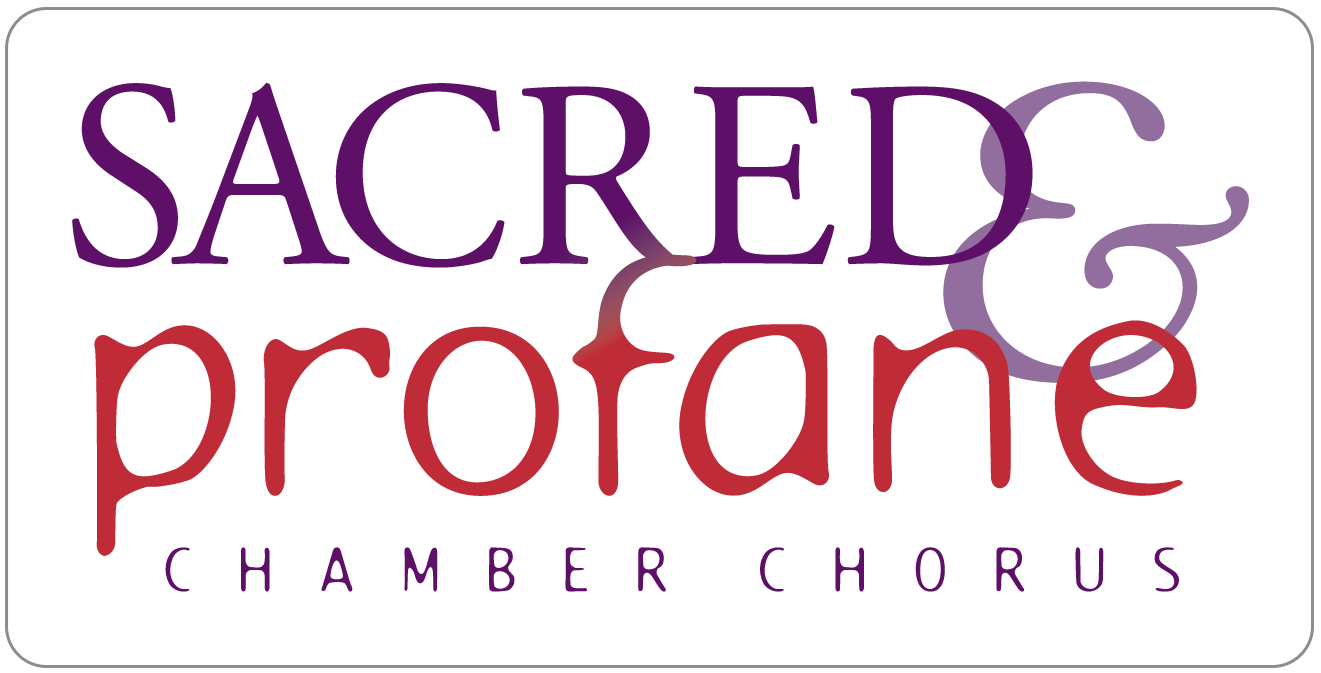Access, Diversity, Equity, and Inclusion
Acknowledgement Statement
We recognize that while diversity is a cornerstone of our mission, we have failed to consider the full range of the meaning of diversity in our own community, in our selection of music, our choice of musical collaborations, and our care for those around us. We are committed to doing better from this moment forward.
Diversity Statement
Sacred and Profane Chamber Chorus is committed to celebrating our vibrant and diverse community. Our core values include uniting our voices for change and using our platform as artists to challenge inequity and amplify unheard voices. We stand in solidarity with those who are systemically silenced, marginalized, and oppressed, and we embrace the power of music to express our shared humanity. We support equity and belonging through our choice of repertoire, our inclusion of singers, audiences, and board members, and our actions as an organization.
Our Action Plan
We recognize that diversity statements in themselves are shallow and meaningless without real action. We are committed to being accountable in this work, and have begun to follow these steps in laying out a comprehensive Diversity Action Plan:
1. To cultivate an environment of access, diversity, equity, inclusion, and belonging in all areas of our organization.
To become a more committed member of our diverse East Bay community.
Establish and maintain a diversity committee that is tasked with developing concrete actions and measurable benchmarks to reach the goals outlined in our action plan steps.
To use inclusive language that creates a space of belonging for singers across the gender spectrum.
To better reflect our community and increase the racial, cultural, and socioeconomic diversity of our singers, our audiences, and our board of directors.
2. To augment underrepresented voices in the music we program and the artists with whom we collaborate.
To fully meet the goals of the Black Voices Matter pledge. To include BIPOC and LGBTQ+ composers and cultures consistently in our programming across our seasons.
To continue to program women composers across our seasons.
To program music that speaks to timely social concerns of the day, including climate change, racism, misogyny, and homophobia.
To collaborate with musicians, ensembles, and artists that reflect the diversity of our community.
To commission music from BIPOC, LGBTQ+, and women composers, and composers who are underrepresented in the dominant classical music environment.
3. To make the enjoyment of live music accessible to all.
To present performances that are inviting and accessible to families with young children, people without financial means to purchase concert tickets, and to people who may feel intimidated by the classical concert experience.
To present short, free performances in public spaces.
To make free and reduced-price tickets available for our standard season concerts to people who lack the financial means to attend concerts, including people who are unemployed and underemployed, students, and older citizens.
4. To contribute to the wellbeing of our community.
To go beyond our musical identity and to volunteer for and work with local organizations that support those in need in our community, creating a culture of civic engagement and intersectionality in the arts.
To recognize that one of racism’s dominant harms in our society lies in the economic violence that denies Black and Brown people and communities equivalent access to the advantages that create wealth and to support efforts to remedy that systemic racism.
Please stay tuned for more updates about our Diversity Action Plan as we work to create, implement, and asses these goals. We recognize this is just the beginning of ongoing work to align our organization more fully with our mission and our community.
Land Acknowledgement
Sacred and Profane Chamber Chorus wishes to respectfully acknowledge the unceded land of the Chochenyo Muwekama Ohlone Peoples who are still living here today, as well as their ancestors, their elders, and their communities. We make this acknowledgement to create greater public consciousness of Native sovereignty and cultural rights, as a step toward equitable relationships and reconciliation.

